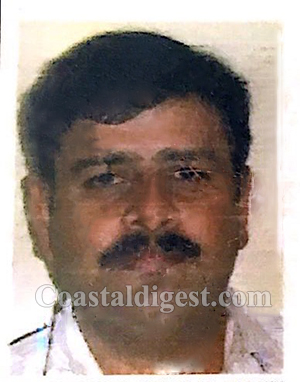Mangaluru, Jan 23: With the results of Joint Entrance Examination (JEE-Main) out, it is celebration time at CFAL (Centre for Advanced Learning), Mangalore’s top training institute as 12 of its students have secured above 99 percentile, out of 120 students who appeared at the prestigious national examination held in January this year. The students are: Kaustubh Rao (99.79), Ujwal Kumar (99.77), Dheeraj Kamath (99.74), Pramod Rao (99.68), Santhosh M (99.59), Mohan Nayak (99.49), Rihan D’silva (99.43), Rishan D’silva (99.41), Pranav Rao (99.41), Aamod BK (99.29), Anmol J Shetty (99.22) and Madhura Sabhahit (99.083).
Apart from the above students, 8 students have scored above 98 percentile, the details of the students are: D.K. Goutham (98.67), Tejah S.S. (98.49), Akash Shetty (98.4), Tejas Bhat K (98.34), Ninaad PS (98.31), Shreepoorna Rao (98.3), K. Annapoorna Prabhu (98.3) and Rakshith Sajjan (98.2). The results of many more students are awaited.
A total of 8,69,010 students had appeared in the said exam from across India. The students who have attempted the JEE Main exam in January can attempt the exams again in April to better their percentile. Students who clear JEE Main qualify for JEE Advanced and are eligible for seats at the NIT’s and other top institutions of the country.
JEE – The most challenging undergraduate admission test
Joint Entrance Examination (JEE) conducted this year by National Testing Agency (NTA) is a national level examination for students to qualify and pursue engineering degree at under graduate level. Paper 1 is held for BE/B.Tech admissions and Paper 2 for B. Arch/B. Planning. JEE Main is a critical criterion for admission in India’s most prestigious and elite universities like IITs and NIT’s.
Those students who clear JEE Main can take the JEE advanced – which is a pre-requisite requirement for admission in the Indian Institute of Technology and Indian School of Mines (Dhanbad)
CFAL – The first name in training
The training at CFAL consists of defined hours of classes, tests and mock exams, unique course material, experienced professors and hence is the first choice for students appearing for STEM examinations including JEE, NTSE, KYPY, OLYMPIADS etc. The centre was established with the intention of giving students of Mangalore information, guidance and tools required to qualify the competitive exams. However, the main aim of CFAL is to inculcate passion for Math and Science learning among students and to encourage research and innovation in the subjects.
 Udupi, Jun 19: An Indian expatriate from Udupi district of Karnataka was killed in a road accident in Kingdom of Saudi Arabia on Saturday.
Udupi, Jun 19: An Indian expatriate from Udupi district of Karnataka was killed in a road accident in Kingdom of Saudi Arabia on Saturday.




Comments
Innaa Lillaahi Wa Innaa Ilaihi Raajiwoon
Inna Lilla hi wa inna ilahi rajioon
May Allah bless his soul & Magfira
INNA LILLAHI WA INNA ILAIHI RAJIWOON....
\Inna lillahi va inna ilahi rajioon\""
Inna lillahi wa inna elahi Rajivoon..... Condolences to the Family.....
Add new comment